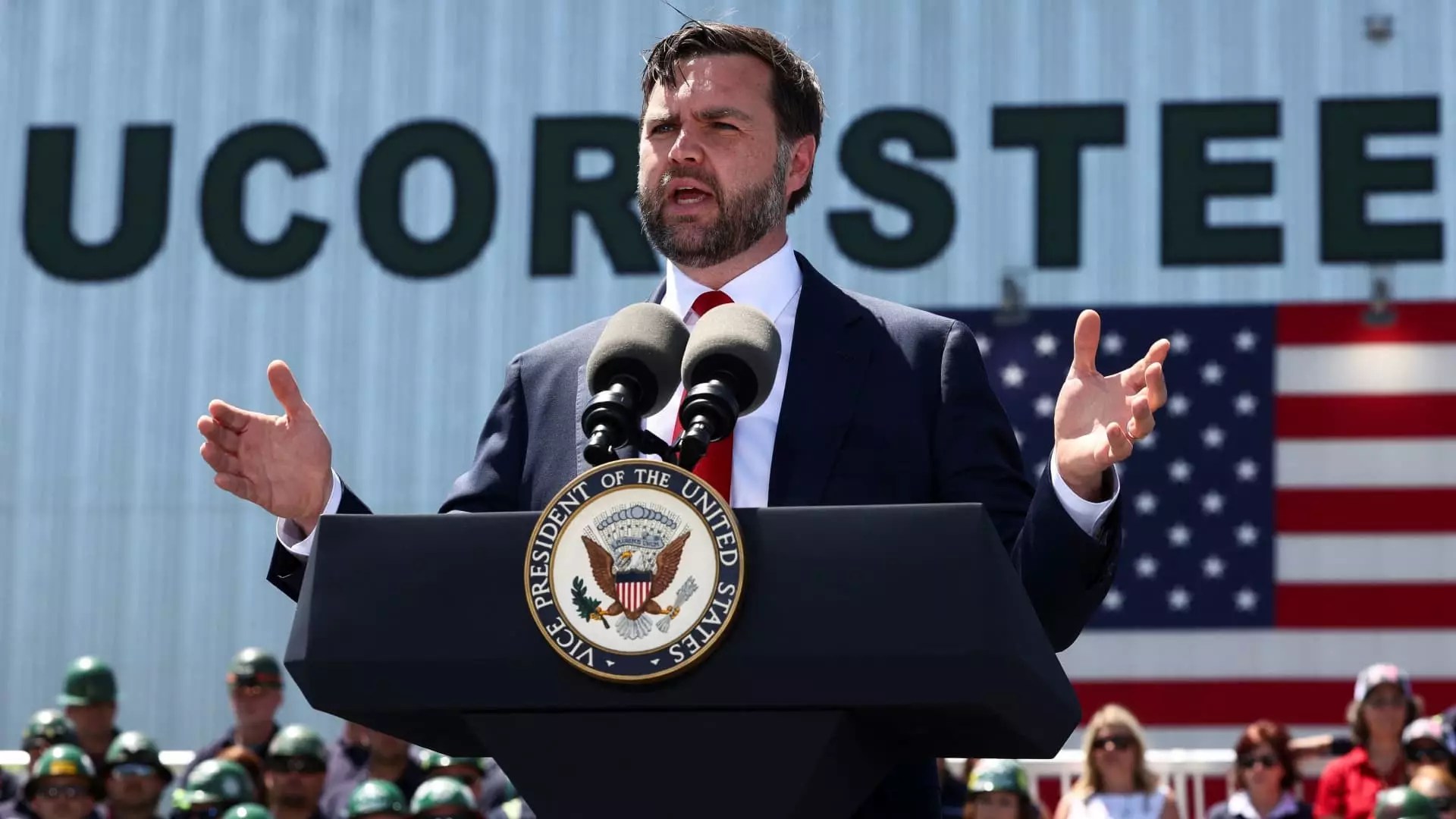President Donald Trump, alongside Vice President JD Vance, has ignited tensions over monetary policy, calling for the Federal Reserve to lower interest rates amid modest inflation metrics. This push appears to be a tactic to bolster the administration as it faces multiple pressures—from international tariffs to fluctuating employment figures. However, this call for easier monetary policy raises some troubling questions about the potential long-term consequences of such actions. While there’s no denying that low rates can stimulate growth, they can also lead to significant financial imbalances if not carefully calibrated. It is essential to scrutinize, not just accept, the political motivations underlying these calls.
Inflation Metrics: A Misleading Indicator?
Recent reports from the Bureau of Labor Statistics suggest the consumer price index (CPI) rose only 0.1%, making the case for a rate cut more tenuous than it seems. The annual figures—2.4% for overall inflation and 2.8% for core metrics—exceed the Fed’s target of 2%, a key threshold that justifies maintaining the current interest rates. Does it serve the nation’s interests to ignore these numbers in favor of political gain? By focusing solely on a single data point, the administration risks oversimplifying a complex economic landscape.
The Dangers of ‘Monetary Malpractice’
Vance’s claim that the Fed’s reluctance to lower rates constitutes “monetary malpractice” is provocative at best and dangerously misleading at worst. Critics of such rhetoric argue that it reflects a fundamental misunderstanding of how central banking operates. By blaming the Federal Reserve for unfavorable economic conditions, the administration may be trying to divert attention from challenges it could better address—such as the impact of tariffs on domestic markets. Calling for a rate cut without considering the broader consequences is an oversimplification that undermines the importance of responsible governance.
Market Reactions and Speculation
The financial markets currently reflect skepticism about any imminent rate cuts, with traders assigning little chance to a near-term reduction following the FOMC meeting. This speculation may indicate that financial professionals understand the complexities of economic indicators better than many policymakers. Furthermore, market confidence is built on stability and predictability, both of which could be jeopardized by impulsive policy changes driven by short-term political objectives.
Elyse Ausenbaugh’s Dilemma
Experts like Elyse Ausenbaugh from J.P. Morgan Wealth Management highlight a critical dilemma: while the easing inflation data suggests a favorable environment for cutting rates, it must be balanced against the uncertainty of long-term economic repercussions. It is dangerously simplistic to presume that a rate cut will automatically lead to increased growth or job creation when we know that such measures can also distort market signals and encourage unsustainable debt levels.
While the allure of lower interest rates may appeal to the immediate pressures of an election year, a deeper analysis reveals potential pitfalls. Responsible economic policymaking requires a delicate balance between short intentions and long-term stability, something that the current administration seems more inclined to overlook in favor of immediate political benefits.


Leave a Reply